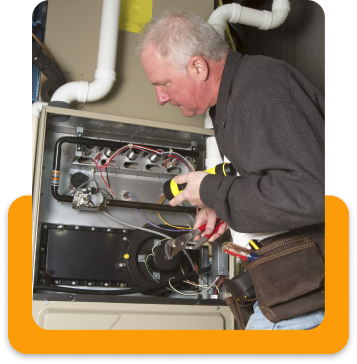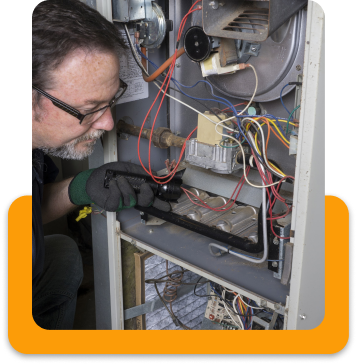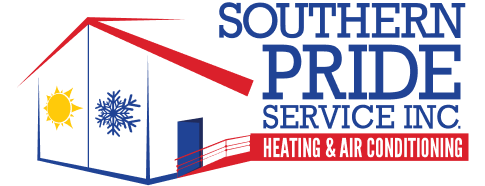As soon as you notice a problem with your heating system, get a quick furnace repair in St. Charles, MD. Continuing to run your system can quickly lead to more costly damage. Fortunately, our technicians at Southern Pride Service are ready to help with furnace service.
Professional Furnace Repair in St. Charles, MD
Same Day Repair – If Applicable

Fix Heater With Furnace Repair
Furnaces are among the most popular heating systems nationwide. They offer extreme versatility in fuel options, including natural gas, electricity, propane, or heating oil. Gas and liquid fuel furnaces typically last 15 to 20 years, while electric furnaces can endure for 20 to 30 years with proper maintenance. During your furnace’s long lifespan, you will likely need professional repair services a couple of times.
- Thermostat
- Ignitor
- Flame sensor
- Heat exchanger
- Blower motor
- Blower belt
A furnace involves several components working together to ensure efficient heating. If you own an electric, gas, oil, or propane furnace, issues with the ignitor, flame sensor, heat exchanger, blower motor, or blower belt can affect its performance.
A faulty ignitor can prevent the furnace from starting, while a dirty or damaged flame sensor might lead to frequent shutdowns. A cracked heat exchanger poses safety risks and requires immediate attention. Blower motor failures result in weak airflow, and a worn blower belt can produce unusual noises or reduce efficiency.
If your furnace’s thermostat screen isn’t working, you may encounter a common problem. A blank screen indicates that the thermostat isn’t receiving enough power. This issue might stem from a tripped circuit breaker or dead batteries. It could also result from loose wiring or a faulty thermostat.
You may also hear unusual noises coming from your heating system. Different sounds reveal various malfunctions within your system. For instance, a squealing noise often signals that the blower fan belt is wearing out. Conversely, a booming sound can indicate inefficient combustion in your furnace’s combustion chamber. Address any strange noises promptly to prevent significant damage to your system.
Another concerning issue is when your furnace emits unusual odors. The specific scent can provide clues about the problem. For example, a sulfur or rotten egg smell indicates a gas leak, necessitating that you shut off the gas supply to your furnace.
A metallic or chemical scent usually suggests that an electrical component in your heating system is malfunctioning. A musty odor often signifies mold or mildew growth in your system or ducting. If you detect a smell reminiscent of car exhaust fumes, it may point to a ventilation system issue.
Furnace Service in St. Charles
Southern Pride Service serves the St. Charles community as your hometown furnace service expert. We provide 24/7 live answering services and have over 30 years of industry experience. Our goal is to always enhance your family’s comfort.
This customer-first mentality has earned us recognition as a Mitsubishi Diamond Elite Contractor, an American Standard Customer Care Dealer, and a member of the Southern Maryland Electric Cooperative (SMECO).

Don’t let a faulty furnace keep you cold. Contact the experts at Southern Pride Service for fast and professional furnace repair services in St. Charles today!
Explore all of our professional HVAC Services!





©2026 Southern Pride Service | All Rights Reserved | License: #18273. | Privacy Policy Web Design and Internet Marketing by RYNO Strategic Solutions
